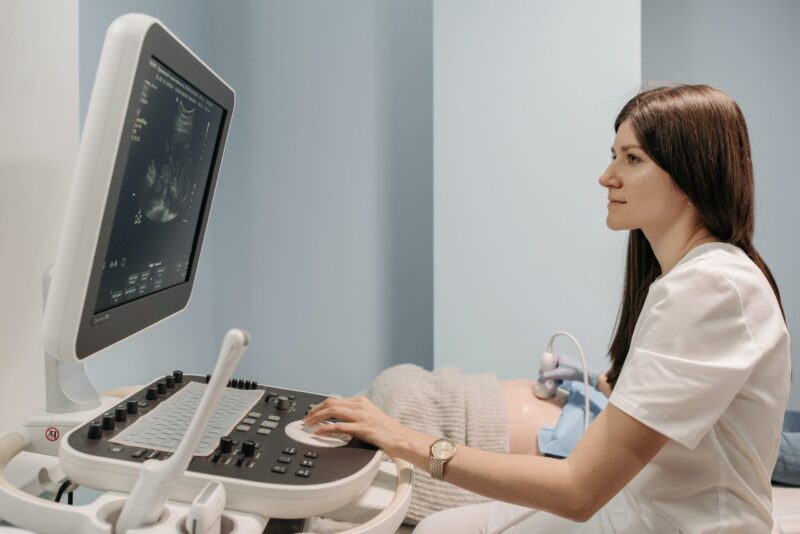It’s unimaginable for a hospital to operate without antenatal and postnatal facilities. The health setting has rightly prioritized maternity care and services. These services are a critical component of healthcare, as they cater to the unique needs of expectant mothers, ensuring a safe and supportive environment throughout pregnancy, childbirth, and the postpartum period. In this in-depth guide, we will explore the key facilities essential for a new hospital to provide top-notch maternity and antenatal care.
1. A Maternity Ward
The physical environment plays a crucial role in the overall experience of expectant mothers. Design the maternity ward to be warm, welcoming, and comfortable.
Ensure you’ve set up spacious and private rooms equipped with the necessary amenities.
Pay attention to details such as ambient lighting, soothing colors, and family-friendly spaces to create a positive atmosphere for expectant mothers and their families.
2. Antenatal Care Clinics
Establishing antenatal care clinics within the hospital is vital for monitoring the health and progress of pregnant women. These clinics should provide a range of services, including regular check-ups, ultrasound examinations, and counseling on nutrition, exercise, and childbirth preparation.
Antenatal services also help in preventing illnesses in the mother and child, improving general well-being. Further having dedicated antenatal care clinics fosters a proactive approach to maternal health.
3. Skilled Obstetricians and Gynecologists
Employing skilled and experienced obstetricians and gynecologists is fundamental to the success of your maternity services. These professionals play a central role in providing antenatal care, assisting with childbirth, and overseeing postpartum care.
Ensure that your hospital has a team of dedicated and compassionate experts who can guide expectant mothers through each stage of their pregnancy journey.
They should work closely with other health staff to ensure the mother and child receive holistic care.
4. Labor and Delivery Facilities
Equipping your hospital with state-of-the-art labor and delivery facilities is essential. Design delivery rooms that prioritize the comfort and safety of both the mother and newborn.
Ensure that the delivery rooms are equipped with necessary medical equipment, monitoring devices, and emergency facilities.
Create a serene environment that supports various birthing preferences, including natural childbirth and delivery with medical interventions like Caesarean section when needed.
5. Neonatal Intensive Care Unit (NICU)
In the event of complications or premature births, having a Neonatal Intensive Care Unit (NICU) is crucial for providing specialized care to newborns. Equip the NICU with advanced medical technology and a skilled team of neonatologists and nurses.
This facility should be located in a favorable environment, factoring access to the main hospital facility and access to other departments.
It will be a lifeline for premature or high-risk infants, offering them the best possible chance at a healthy start in life.
6. Postpartum Care Facilities
Postpartum care is an integral part of maternity services, focusing on the well-being of both the mother and baby after childbirth. Design comfortable postpartum recovery rooms where mothers can rest and bond with their newborns.
Provide lactation support, newborn care education, and emotional support to ensure a smooth transition into motherhood.
7. Breastfeeding Support Centers
Establishing breastfeeding support centers within the hospital encourages and facilitates breastfeeding, which is crucial for the health and development of newborns.
Employ lactation consultants to provide guidance and support to new mothers. These centers should be equipped with private spaces for breastfeeding or expressing milk and offer educational resources on breastfeeding techniques and benefits.
8. Prenatal and Postnatal Education Programs
Educating expectant mothers about prenatal and postnatal care is essential for promoting healthy pregnancies and positive birth experiences.
Implement educational programs covering topics such as nutrition, exercise, childbirth education, breastfeeding, and postpartum care.
These programs can be conducted through classes, workshops, or online resources, offering comprehensive information to empower expectant mothers.
9. Family Planning and Contraceptive Services
Offering family planning and contraceptive services is a crucial aspect of maternity care. Provide counseling on contraceptive options, family planning education, and access to contraceptives.
This ensures that mothers can make informed decisions about their reproductive health and plan for future pregnancies according to their preferences.
10. Mental Health Support Services
Maternal mental health is a significant consideration in maternity care. Establish mental health support services that address the emotional well-being of expectant and new mothers.
This may include counseling services, support groups, and resources for coping with postpartum depression or anxiety.
Integrating mental health support into maternity care contributes to the holistic well-being of mothers.
11. Emergency Obstetric Care
Despite meticulous planning, emergencies can arise during childbirth. Having a well-equipped emergency obstetric care unit is critical for handling complications swiftly and effectively.
Ensure that your hospital has a designated space for emergency procedures, a skilled emergency response team, and readily available medical supplies for urgent situations.
12. Telemedicine Services
Incorporate telemedicine services into your maternity care offerings. Telemedicine provides an opportunity for expectant mothers to access medical consultations, receive advice, and attend educational sessions remotely.
This is especially valuable for those in remote areas or those facing mobility challenges.
13. Inclusive Facilities for All Mothers
Ensure that your maternity and antenatal facilities are inclusive and considerate of the diverse needs of all mothers.
This includes providing accessible facilities for mothers with disabilities, accommodating various cultural practices, and offering support for LGBTQ+ individuals and families.
14. Continuous Quality Improvement Programs
Implement continuous quality improvement programs to assess and enhance the effectiveness of your maternity services. Regularly evaluate patient outcomes, satisfaction levels, and adherence to best practices. Use feedback from patients, healthcare professionals, and quality indicators to make informed adjustments and improvements.
Conclusion
Establishing a hospital with reliable antenatal and postnatal facilities requires keen planning and commitment. By prioritizing the physical setup, wards, skilled medical staff, and support services, your maternity department can be up and running in no time. If you’re already offering antenatal and postnatal services, these strategies and considerations will guide you on the essential improvement sections you need. Stand out today, with comprehensive maternity care for your hospital.


Write a comment
Your email address will not be published. All fields are required